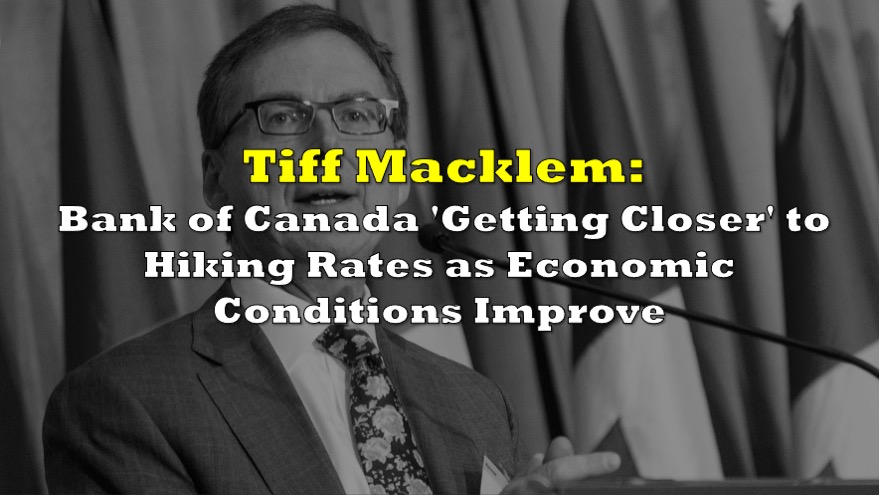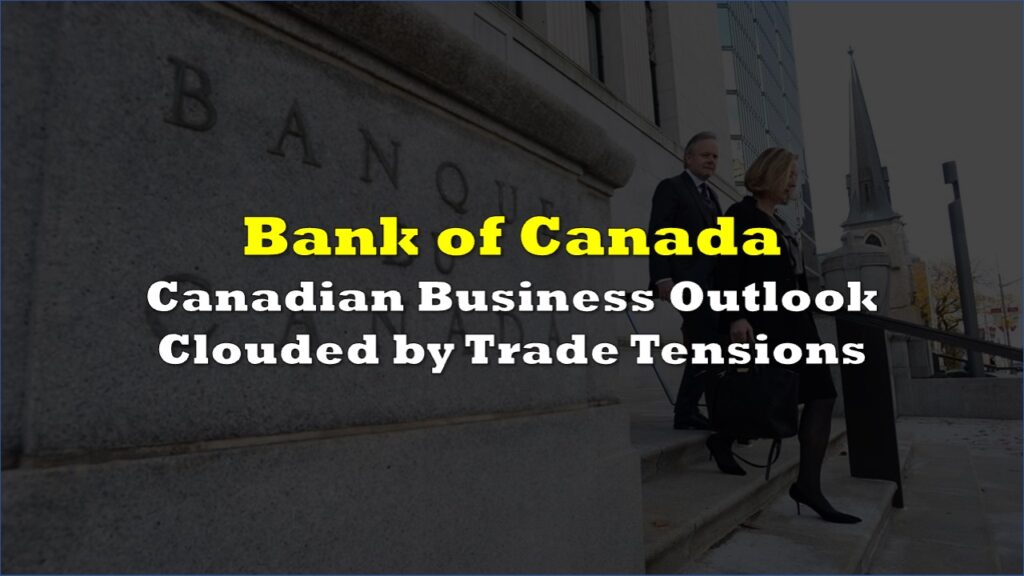Bank of Canada Governor Tiff Macklem once again reassured Canadians that the central bank is prepared to act if inflation becomes out of control, but did acknowledge that interest rates will need to be raised a lot sooner than previous forecasts.
In an opinion piece published by the Financial Times, Macklem said that the Bank of Canada is inching closer to hiking rates, as economic slack continues to dissipate and price pressures mount. “For the policy interest rate, our forward guidance has been clear that we will not raise interest rates until economic slack is absorbed,” he said. “We are not there yet, but we are getting closer.”
Macklem is referring to a sustained inflation rate of 2% and employment levels that reflect pre-pandemic figures as a condition for a potential pull-back in borrowing rates. He cited an improved labour market as well as advancements in economic growth, which is forecast to hit an annualized 5% this year as the reasoning for the central bank’s re-evaluation in its policy decisions.
Macklem’s remarks follows a recent hawkish policy shift from the Bank of Canada, which pulled back its purchases of government bonds, effectively ending the unprecedented quantitive easing program that pumped billions of dollars into the country’s economy. The abrupt reversal in fiscal policy also updated the timeline of an interest rate increase from 2023 to sometime in 2022, in an effort to tame runaway prices that are persisting longer than expected. “What our resolve does mean is that if we end up being wrong about the persistence of inflationary pressures and how much slack remains in the economy, we will adjust,” Macklem assured.
“As for our forward guidance on the policy interest rate, we were clear from the outset that it was based on an outcome,” Macklem said, adding that the central bank’s view on transitory price pressures is still in tact. However, he did warn that supply shortages are a lot more enduring than policy makers were forecasting. “Supply disruptions appear to be lasting longer than we thought, and energy price increases are adding to current inflation rates,” he explained.
Information for this briefing was found via the Financial Times. The author has no securities or affiliations related to this organization. Not a recommendation to buy or sell. Always do additional research and consult a professional before purchasing a security. The author holds no licenses.









